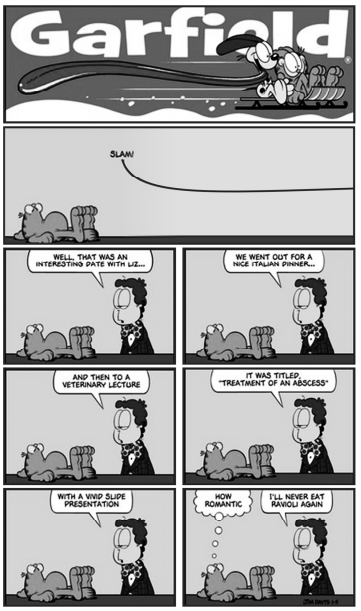Questões de Concurso Público SME do Recife - PE 2023 para Professor II - Disciplina: Língua Inglesa
Foram encontradas 120 questões
Considering information from text 7A1, judge the following item.
In “He noted that sarcasm and irony only make sense within
this widened context”, the adjective “widened” is
synonymous with expanded.
Concerning the concepts of skimming and scanning, judge the following item.
To find numbers or dates quickly in a text, we may use the
scanning method.
Concerning the concepts of skimming and scanning, judge the following item.
Reviewing is one of the applications of the scanning method.
Concerning the concepts of skimming and scanning, judge the following item.
Looking up the meaning of a word in the dictionary is an
example of scanning.
Concerning the concepts of skimming and scanning, judge the following item.
It is important to read the summary of an article to stablish
an adequate scanning process.
A prática linguística no contexto da língua escrita deve permanecer como foco de ensino.
Em sala de aula, é importante incentivar a busca pela fluência em uma variante padrão específica.
O sentido de vocábulos estudados e aprendidos em língua inglesa deve ser negociado de forma dinâmica e contextualizada.
Os estudantes devem ser incentivados a expressar suas próprias realidades em língua inglesa.
Based on the precedent comic strip, judge the following item.
The man enjoyed his date very much.
Based on the precedent comic strip, judge the following item.
The slide presentation he watched was too realistic for him.
Based on the precedent comic strip, judge the following item.
The man wished he had not eaten ravioli.
Based on the precedent comic strip, judge the following item.
The cat’s only comment is very sarcastic.
Judge the following item, related to text 7A2 and its subject.
It is correct to infer that languages in general work the same
way because they are structures.
Judge the following item, related to text 7A2 and its subject.
Differences among languages do not allow them to be
hierarchically classified according to decontextualized
criteria.
Judge the following item, related to text 7A2 and its subject.
It would be correct to infer from the text that fishing and
beer production are of great concern both for the Agta people
and for the inhabitants of Munich.
Judge the following item concerning text 7A2.
Because of the complex structures of the first sentence of the
text, it would be enough to replace the question mark with a
full stop at the end of such sentence to make it into a
statement.
Judge the following item concerning text 7A2.
The conjunction “though”, in the third sentence of the
second paragraph, indicates that the fact that languages are
potentially equal is somewhat surprising or unexpected when
compared to the information that only certain languages have
adapted to the needs of a ‘complex industrial civilization’.
Judge the following item concerning text 7A2.
In “play no part in their culture?”, the word “part” could be
replaced by role or act without any change in the meaning of
the sentence.
Judge the following item concerning text 7A2.
In the last sentence of the first paragraph, using “are
reported”, the author means that the Agta people themselves
have studied their vocabulary on fishing.
